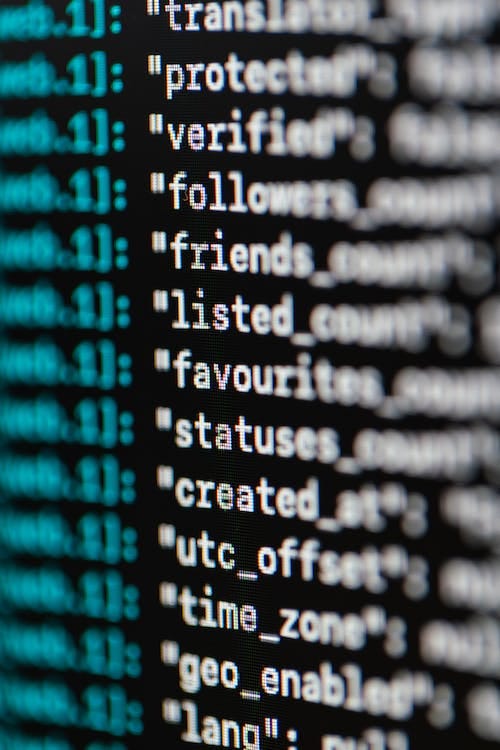AI is Taking Over Politics: How the Future of Governance is Being Shaped by Technology
As artificial intelligence (AI) continues to advance and become more integrated into our daily lives, it’s likely that its role in politics will only grow. In fact, AI has already been used in a variety of ways in the political sphere, including to analyze and predict voter behavior, assist in policy-making, and even aid in the creation of campaign materials.
One area where AI could potentially have a significant impact on politics is in policy-making. By analyzing large amounts of data, AI could help policymakers identify patterns and trends that may not be immediately apparent to humans. This could lead to the creation of more effective and evidence-based policies.
AI could also be used to enhance political campaigns by targeting specific voter demographics with personalized messaging and advertisements. This could help campaigns more effectively reach and sway voters, potentially leading to more successful election outcomes.

In addition to its potential uses in political campaigns, AI could also be used to improve the delivery of public services, such as healthcare, education, and transportation. For example, AI could be used to streamline the process of scheduling appointments, identifying inefficiencies in resource allocation, or improving the accuracy of diagnoses.
As political campaigns and government organizations increasingly rely on technology, they become more vulnerable to cyberattacks. AI could be used to improve cybersecurity and protect against such threats, potentially increasing the stability and security of the political system.

AI could also be used to increase transparency and accountability in politics by analyzing and tracking the activities of politicians and political organizations. This could help ensure that politicians are held accountable for their actions and that the public has a better understanding of the inner workings of the political system.
Finally, AI could be used to assist with redistricting and gerrymandering, helping to ensure that political representation is more fairly distributed. By analyzing population data and other factors, AI could potentially help create more balanced and representative electoral districts.
While AI has the potential to bring about many positive changes in the realm of politics, it’s important to consider the potential drawbacks as well. For example, the use of AI in political campaigns could lead to the amplification of biased or misleading information, and the reliance on AI for policy-making could limit the role of human judgment and expertise. It will be important for lawmakers and policy experts to carefully consider the potential impacts of AI on politics and work to mitigate any negative consequences.
Overall, AI is likely to have a significant impact on politics in the future. As the technology continues to evolve, it will be important to carefully consider both the potential benefits and drawbacks of AI’s integration into the political sphere.

Thank you for reading our blog about artificial intelligence! We hope you found it informative and insightful.
If you enjoyed this article and want to stay up-to-date with our latest content, be sure to follow us on social media. We regularly post about AI and other topics related to technology and innovation. You can find us on YouTube and Instagram, for more AI content:
Youtube & Instagram
Thank you for your support, and we look forward to connecting with you on social media. Stay tuned for more exciting content about artificial intelligence and other cutting-edge technologies.
One area where AI could potentially have a significant impact on politics is in policy-making. By analyzing large amounts of data, AI could help policymakers identify patterns and trends that may not be immediately apparent to humans. This could lead to the creation of more effective and evidence-based policies.
AI could also be used to enhance political campaigns by targeting specific voter demographics with personalized messaging and advertisements. This could help campaigns more effectively reach and sway voters, potentially leading to more successful election outcomes.
In addition to its potential uses in political campaigns, AI could also be used to improve the delivery of public services, such as healthcare, education, and transportation. For example, AI could be used to streamline the process of scheduling appointments, identifying inefficiencies in resource allocation, or improving the accuracy of diagnoses.
As political campaigns and government organizations increasingly rely on technology, they become more vulnerable to cyberattacks. AI could be used to improve cybersecurity and protect against such threats, potentially increasing the stability and security of the political system.
AI could also be used to increase transparency and accountability in politics by analyzing and tracking the activities of politicians and political organizations. This could help ensure that politicians are held accountable for their actions and that the public has a better understanding of the inner workings of the political system.
Finally, AI could be used to assist with redistricting and gerrymandering, helping to ensure that political representation is more fairly distributed. By analyzing population data and other factors, AI could potentially help create more balanced and representative electoral districts.
While AI has the potential to bring about many positive changes in the realm of politics, it’s important to consider the potential drawbacks as well. For example, the use of AI in political campaigns could lead to the amplification of biased or misleading information, and the reliance on AI for policy-making could limit the role of human judgment and expertise. It will be important for lawmakers and policy experts to carefully consider the potential impacts of AI on politics and work to mitigate any negative consequences.
Overall, AI is likely to have a significant impact on politics in the future. As the technology continues to evolve, it will be important to carefully consider both the potential benefits and drawbacks of AI’s integration into the political sphere.
Thank you for reading our blog about artificial intelligence! We hope you found it informative and insightful.
If you enjoyed this article and want to stay up-to-date with our latest content, be sure to follow us on social media. We regularly post about AI and other topics related to technology and innovation. You can find us on YouTube and Instagram, for more AI content:
Youtube & Instagram
Thank you for your support, and we look forward to connecting with you on social media. Stay tuned for more exciting content about artificial intelligence and other cutting-edge technologies.
Kommentit
Lähetä kommentti